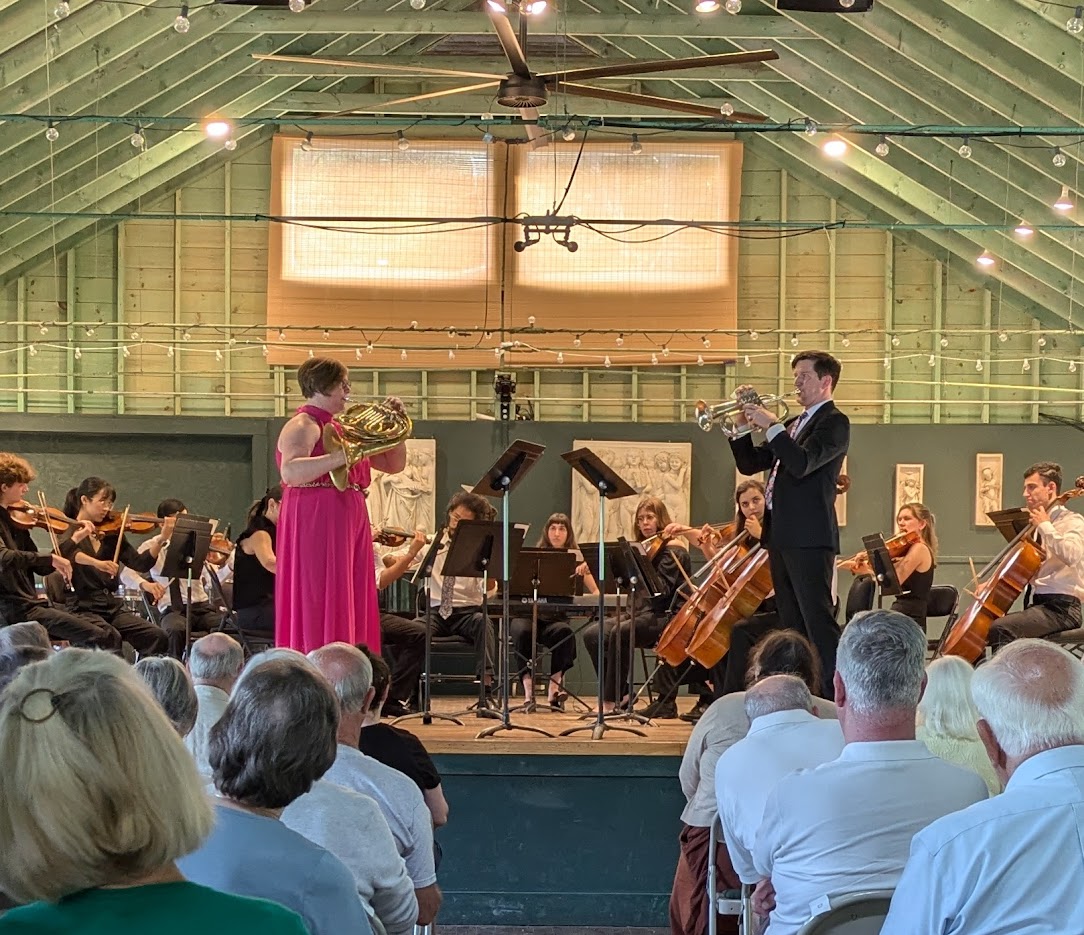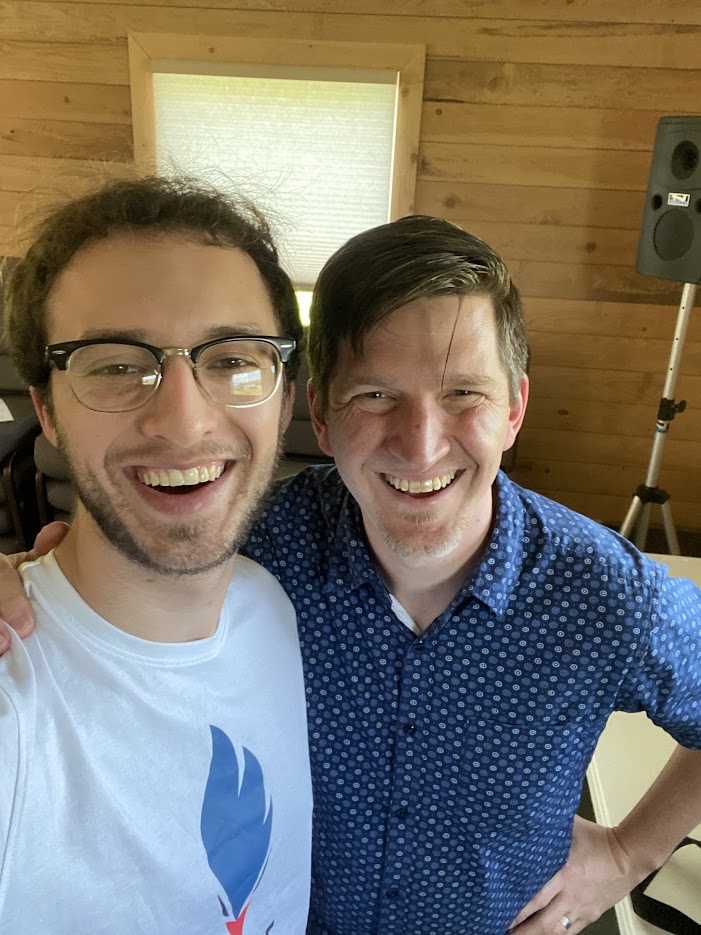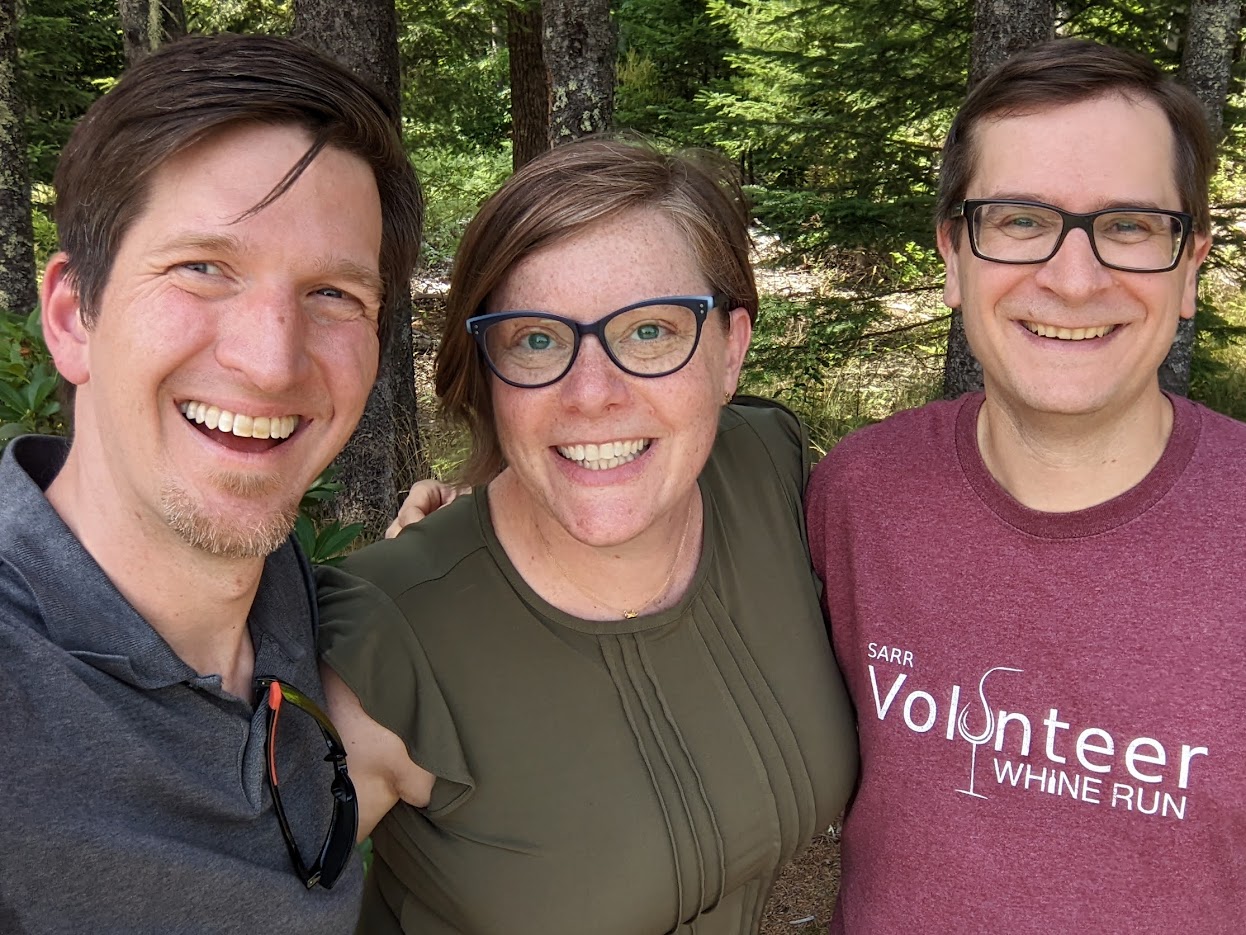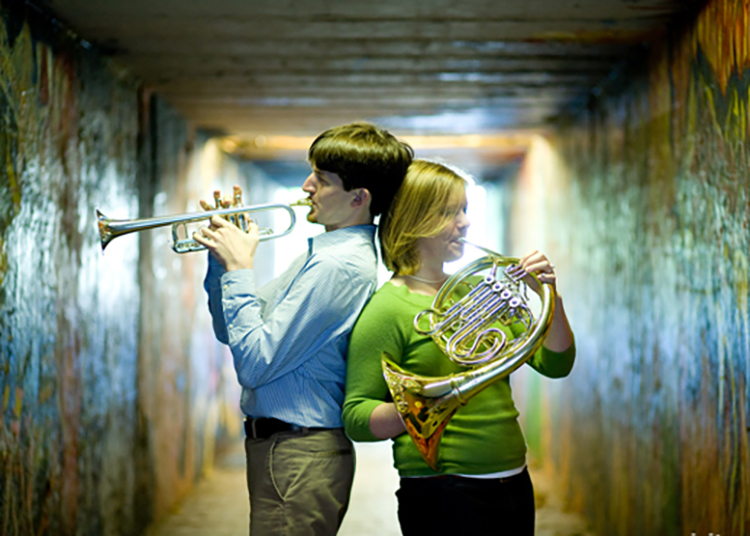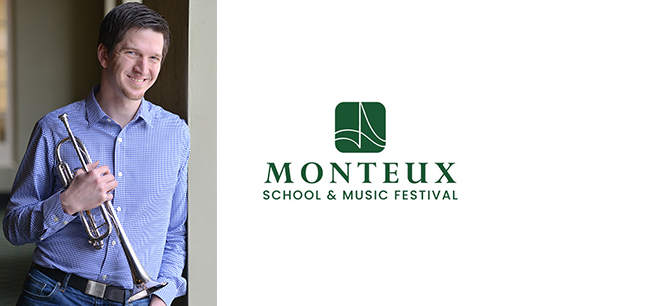
Blair professor Fred Sienkiewicz holds a special relationship with the Monteux Festival in Maine. Not only was Monteux a transformative early musical experience, it’s also where he met his wife and fellow musician, Kristen.
In this Q&A feature, he shares his early festival experiences and how they have impacted his teaching methods.
How would you describe the Monteux Festival?
Monteux is something of a hidden gem in the world of summer festivals. It’s a conducting school, but also so much more. Pierre Monteux was a famous French conductor who premiered Stravinsky’s Rite of Spring and served as music director in San Francisco and Boston. He married and his wife was from Hancock, Maine, so in the summers he would bring his conducting students to the family home in Maine and teach them. Then he brought orchestra players with him so they could learn by conducting a real orchestra. Today they have a full orchestra of players and about 15 student conductors (who also must play in the orchestra) every summer.
Folks who know the Monteux School love the place. The conducting pedagogy and the music making is very high quality. But it also retains its humble, family-affair quality. It’s a magical combination and contrast — incredible music and learning but away from the large endowments, glamour, and fame associated with the “big” concert halls and festivals. The magic all happens in a modest barn in the woods of Maine, a short walk from the coast, near Bar Harbor. The setting is idyllic and the atmosphere is like family.
What do you recall about your first festival experiences?
My summers at Monteux were absolutely formative. The orchestra puts on a public concert every Sunday, and sight-reads many more pieces during the week with the student conductors. I thought I was going for the experience playing, but I learned so much from soaking up how Maestro Michael Jinbo (RIP 2022) coached the conductors and the orchestra. I learned how the dynamic between conductor should (and shouldn’t!) work. We read or perform 60 major works of orchestral literature every summer — a ridiculous pace, but you learn to sight-read really fast.
I also met my wife Kristen there in the first summer – she was playing Horn in the orchestra and we hit it off – and that fall we were together in the graduate program at the New England Conservatory. We loved the experience we returned together for three more summers to soak in everything the place had to teach. It became ‘our place’: our last summer we decided on a whim to come back and run the Bar Harbor Marathon that fall (and did it again after that), we took our honeymoon in Bar Harbor, and we still return to vacation and hike when we can.
How has the festival impacted how you now teach?
I wouldn’t be teaching solfège and ear training here at Vanderbilt if it hadn’t been for Monteux. I had already been introduced to the French solfège (ear training) tradition by my teachers, but at Monteux I really saw it at work.
The Monteux School pedagogy is incredibly demanding on the conductors. Monteux himself was trained in the old French tradition and the student conductors were expected to be mentally singing — with GREAT accuracy! — all the parts of the orchestra, at all times. This ‘inner singing’ is like painting where you can see what the finished picture should be as you are drawing, but for music. The constant refrain from the maestro to the student conductors was “Stop! You’re not singing!” or “Stop! Sing [out loud] how you want the violas to play their part here” (this usually happens when it was some difficult counter-melody or rhythmic figure). Maestro Jinbo was a grand-student of Monteux, and when he would take the podium the players in the orchestra could just feel the music just flowing off of his baton in waves, drawing you into his vision of the piece. It was brilliant and compelling and effective, and he barely had to say a word.
At the time I was in my graduate studies at the New England Conservatory (a school whose foundations are in the French conservatory tradition), working as a teaching assistant for the solfège department. For a few years I was back and forth between learning and teaching the French solfège tradition at NEC during the year and observing how powerful it can be when it is really put into practice on the podium during the summers.
I also saw very clearly that the pedagogy wasn’t just for conductors, but for all musicians. The thing I needed to learn at that point in my development was to become stronger in this ‘inner singing’. Now, I try to share those lessons with the undergraduate music students through my ear training classes at Blair.
What role did you play in this year’s Monteux Festival?
My wife Kristen and I were both invited as artists-in-residence for a week at the end of June, which meant sitting with the brass in the back of the orchestra and coaching and giving masterclasses. We also performed Vivaldi’s Concerto for Two Horns, RV 539 together with the orchestra and a student conductor. This light and bubbly concerto is a fun one: it’s originally scored for two small baroque instruments called corno da caccia, which is something like a small French horn. In modern terms, the 1st solo part is so high that it is basically out of the range for many modern horn players! It’s actually a very comfortable fit for the trumpet register, so I played the high part on flugelhorn together with my wife playing the other solo part on horn.
It was a thrill to be back in a place that has meant so much to my trajectory as a musician and a teacher, and to help a new generation of orchestral players learn some of the lessons that I first learned in that wonderful barn in the woods.
* * *
Fred Sienkiewicz teaches aural skills and advanced musicianship, aural skills in the Blair Academy, and Suzuki trumpet through the Blair Suzuki program. Conservatory-trained as an orchestral trumpeter, he is a passionate advocate for solfège training and enjoys a diverse career as a performer, pedagogue, and scholar. Sienkewicz holds degrees from the University of Massachusetts, the New England Conservatory of Music, and Boston University.
